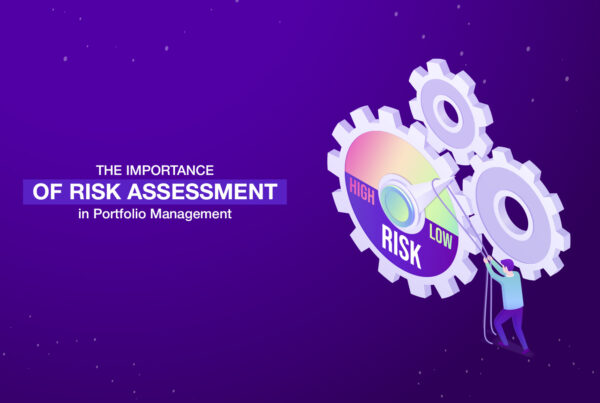When it comes to making your money work for you, there’s a timeless question: Should you invest in real estate or stocks?
It’s a question that weighs heavily on the minds of investors across India. Some favor the flexibility and potential of stocks, while others find security in the tangible nature of real estate. And some prefer a mix of both.
In this exploration, we’ll break down the basics, examine the pros and cons, and help you navigate the path that best suits your investment goals.
Investing in Real Estate
Diving into real estate offers a multitude of investment avenues. Whether you’re eyeing land, residential, or commercial properties, each presents unique opportunities. You can opt for the long game with a steady rental income. Plus, watch your investment bloom as property values appreciate over time, giving you the option to cash in when the time is right. It’s like planting seeds of wealth that grow into mighty money trees!
However, this approach requires a substantial upfront investment.

Real Estate Investment Trusts (REITs), and Crowdfunded Real Estate are alternative forms of investing in real estate that do not require managing properties by yourself.
They pool funds to invest in a range of income-generating properties, from skyscrapers to shopping malls. Want in on the action? You can grab a piece of the pie by purchasing shares in these trusts. Then, sit back and enjoy the show as the rental income rolls in, distributed to investors like you in the form of dividends. It’s like being part-owner of a real estate empire without the hassle of being a landlord!
Similar to mutual funds, you can conveniently purchase and sell REITs on stock exchanges and benefit from their liquidity and diversification.
Meanwhile, crowdfunding empowers investors to pool resources for the acquisition of a specific property. As a shareholder, you stand to reap rewards from both rental income and a share in the profits from the property’s future sale.
Investing In Stocks
Stocks, also referred to as shares or equity, symbolize ownership in a company. Purchasing stocks means acquiring a fraction of ownership in that company, entitling you to a portion of its assets and earnings.
Stocks are typically traded on stock exchanges, where investors engage in the buying and selling of shares of publicly listed companies.
Real Estate or Stocks – Which Gives You More Profit?
Like any other investment, choosing between real estate and stocks isn’t a one size fits all situation. Each comes with its own perks and pitfalls and it’s about “choose your adventure” scenario.
What is your financial goal?
- Are you looking for long-term or short-term profit?
- How much risk are you willing to take?
- How much money are you willing to invest?
A deep-dive into the above is crucial to decide which of these investment options can set you up for success.
Real Estate – Pros and Cons
Pros
More Control: A physical real estate owner has more control over their assets. You can bring changes to the property/land, renovate to increase its value and sell/rent with more benefits.
Predictable Cash Flow: Real estate investment can provide predictable, recurring cash flow. Whether it is passive income from rental properties, dividends from REITs, or active income from selling the share/property owned.
Growth Potential: As urbanization and population growth drive demand for properties, well-located properties have the potential for both capital appreciation and generating rental income.
Low Risk: Real estate is considered a lower-risk investment. Property values tend to be more stable over time. The rental income and physical nature give a sense of security also.
Easy to Understand: While the property-buying journey can be complicated, the process is easy to understand. Purchase a property, manage upkeep, and attempt to resell for a higher value.
Cons
More Effort: Owning physical properties involves substantial hands-on work and effort. The paperwork, maintaining rental properties, managing tenants, and repairs and more (In case of REITs you are free from these efforts).
High Transaction Costs: You’ll need to meet several expenses including registration charges, stamp duty, repair charges, and capital gain tax, rental income tax. (With REITs, you’re relieved from registration and maintenance fees, yet you’re subject to capital gains and rental income taxes).
Time Commitment: Real estate investments demand patience. From buying a property to lending, reselling when the market is good, and finding the right tenants and buyers. It may take time to receive your return on investment. It’s a long-term game, and success often comes to those who endure waiting periods and persist through various challenges.
Risk of Being Conned: Navigating the real estate world can sometimes feel like tiptoeing through a maze – there’s always a risk of stumbling into a trap. From falling for flashy but fake advertisements to getting entangled in properties with legal woes, the dangers are real.
Stocks – Pros and Cons
Pros
Higher Returns: The stock market has the potential to offer higher returns through dividends and capital gains. Dividend stocks offer a steady income stream and are a good sign of company growth. You can also reinvest dividends to buy more stocks.
Convenient: Through online trading platforms, stocks are easy to buy and sell according to your convenience.
Diversification: You can easily diversify your portfolio with stocks. You can invest in mutual funds, Index funds, ETFs or buy shares of individual stocks without a substantial upfront amount.
Control Losses: You have the option to set a predetermined selling point for a stock, triggering a sale if its price drops below a specified limit. This proactive measure alleviates concerns about significant losses during unforeseen market downturns.
Lower Fees: Fees for stock investments are considerably low. Additionally, many platforms have a low-cost option and some wealth management platforms provide free services.
Cons
Higher Risk: Stocks can experience rapid surges in value, but at the same time may experience a huge dip. To minimize this risk, right amount of research in the companies you choose to invest in is essential.
Lack of Control: While you have the freedom to select the companies in which you invest, you have no control over their management, operations, and critical decision-making processes.
Time and Expertise: Achieving success in stocks requires a significant investment of time to study the market and trends. Investors must dedicate themselves to researching and analyzing the market, companies, and how well they align with their financial goals.
Real Estate Vs. Stocks – Conclusion
When assessing real estate and stock market investments, both options offer distinct benefits and obstacles. The decision to choose one depends on your financial objectives.
Real estate offers stability and hands-on control over your assets whereas the stock market offers liquidity and adaptability. With market conditions constantly influenced by global events, it’s challenging to favor one over the other.
While both options have their pros and cons, some of the drawbacks of traditional real estate investment are mitigated by the availability of Real Estate Investment Trusts (REITs). Similarly, the challenges associated with the stock market can be overcome by approaching it with a clear focus and a well-defined strategy.
Whether you’re diving into individual investments or combining them for a robust portfolio, a sound investing strategy can pave the way for a bright financial future. But for those who prefer to skip the intricacies and focus on wealth building, https://www.moolaah.com/ offer an ideal solution.
Enter Moolaah. We’re more than just an investment platform – we’re an independent wealth ecosystem. With us, you can tap into the expertise of financial professionals, craft a personalized investment strategy, and navigate your financial journey with confidence. Let’s make your financial goals a reality, together.





